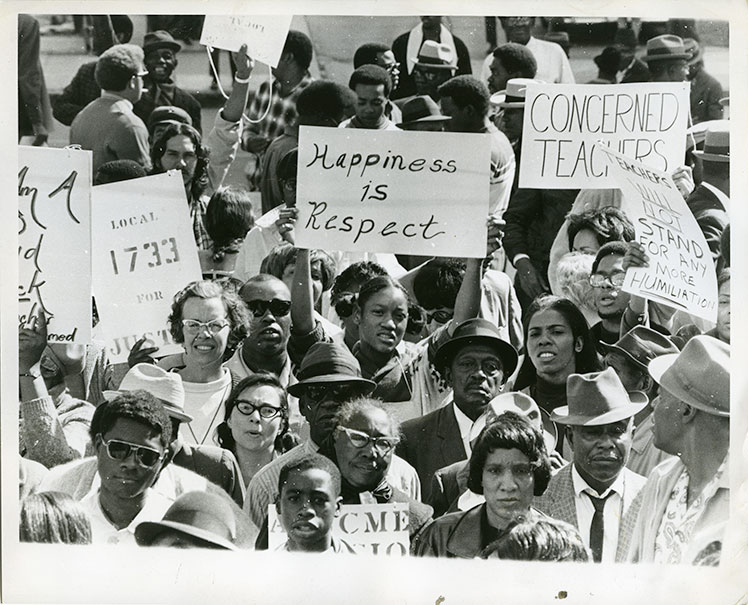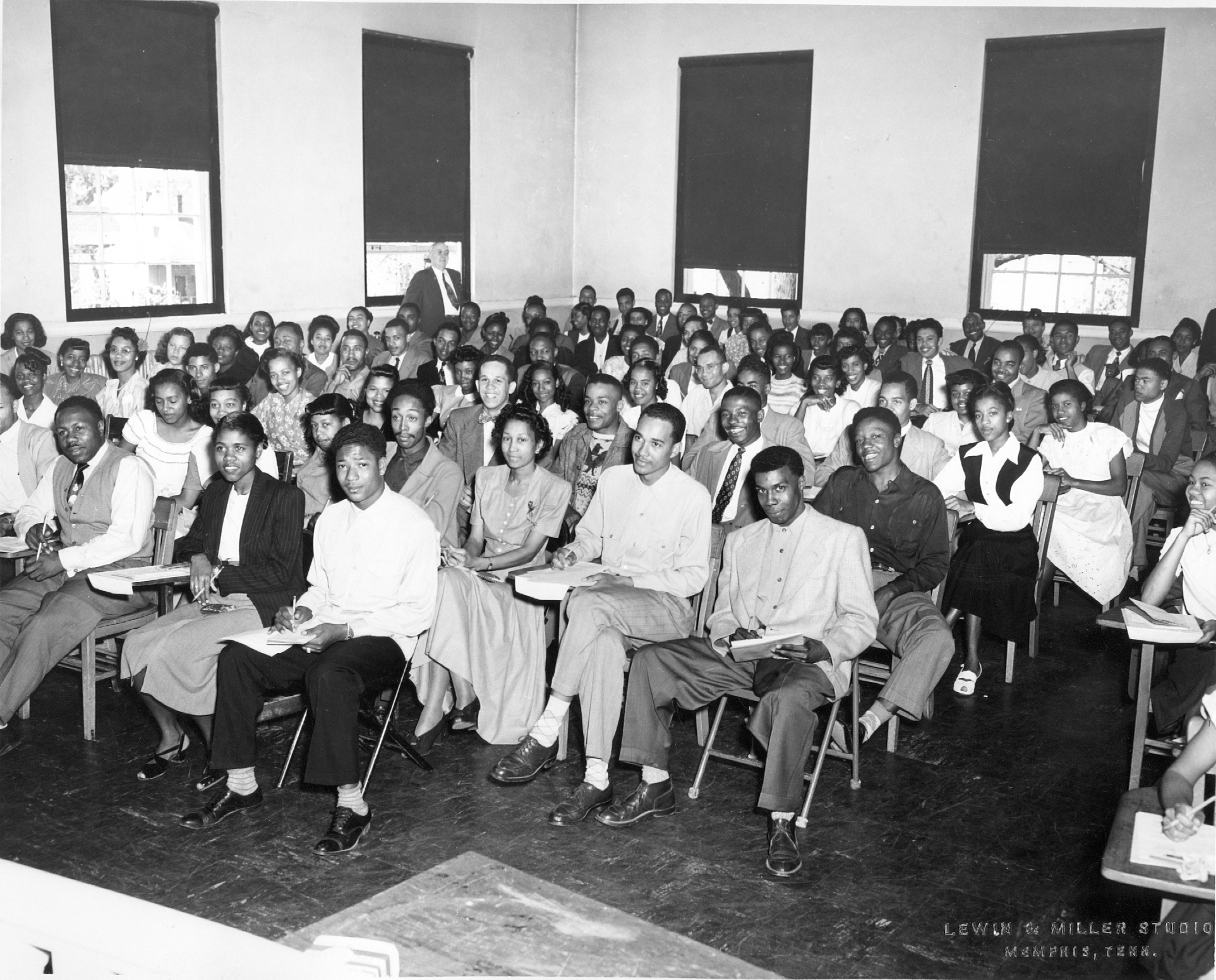The Benjamin L. Hooks Institute for Social Change
Desegregation of Memphis City Schools
The year 1960 was a banner year for the Memphis NAACP branch. The organization challenged the city's segregated school system in Northcross v. Board of Education of the Memphis City Schools. The lawsuit compelled city officials to voluntarily desegregate schools starting with the first grade. On the first day of school the following year, thirteen African American children entered Memphis City Schools without any disturbances. Students at LeMoyne and Owen colleges initiated a direct-action campaign when they staged sit-ins at downtown facilities. Lawyers for the Memphis NAACP represented the students who were arrested in these demonstrations. The organization then engaged in a direct-action campaign boycotting and picketing downtown businesses to protest segregation throughout the city. Their efforts led to gradual citywide desegregation of lunch counters, parks, movie theaters, the local zoo and main library, and other facilities.

In the 1960s, an increasing number of African American Memphians were elected to local and state offices. In 1964, A.W. Willis became the first African American to serve as a state representative in Tennessee since the late 1880s. Clarksville newspaper editor Jesse Graham was elected in 1897, but was not permitted to take his seat. In 1965, Benjamin L. Hooks became the first African American criminal court judge in the state. NAACP president Jesse H. Turner was one of the first blacks elected to the Shelby County Quarterly Court. The NAACP continued fighting for representation throughout the decade through court cases and advocating in letters and at meetings.

